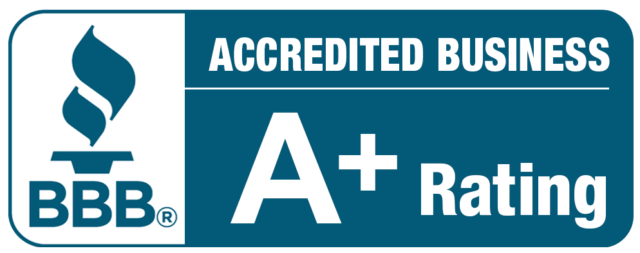6. Due to the importance of medication adherence and the need to be consistent with your meds, the need to create a medication schedule cannot be over-emphasized. Schedules will help you know what meds to take and what time it is.
Combining a medication schedule with technological solutions for medication reminders makes the process of staying consistent with your routine medication seamless. This will improve consistency, and foster quick recovery.
Maintaining a consistent medication schedule is crucial for managing your health effectively. Whether you’re juggling multiple prescriptions or simply aiming to stay on top of your wellness routine, a well-organized medication schedule can make a world of difference.
In this guide, we’ll walk you through a 15-step process to create an efficient and sustainable medication schedule that ensures you never miss a dose.
What Is A Medication Schedule?
A medication schedule, also known as a medication regimen or medication plan, is a structured plan that outlines the specific times, dosages, and instructions for taking prescribed medications. It serves as a guide to help individuals manage their medication intake effectively and consistently.
A well-designed medication schedule ensures that you take your medications at the right times and in the correct dosages, which is essential for achieving optimal therapeutic outcomes and avoiding potential complications. A typical medication schedule includes the following information for each medication:
- Medication Name: The name of the prescribed medication.
- Dosage: The amount of medication to be taken, usually indicated in milligrams (mg) or other relevant units.
- Frequency: How often the medication should be taken in a day (e.g., once daily, twice daily, every four hours, etc.).
- Timing: The specific times of day when each dose should be taken. This could include morning, afternoon, evening, or even exact hours (e.g., 8 AM, 1 PM, 7 PM).
- Instructions: Any special instructions related to the medication, such as whether it should be taken with food, on an empty stomach, or at bedtime.
- Duration: The length of time the medication should be taken. Some medications are taken for a short period, while others are taken on an ongoing basis.
- Additional Notes: Any other relevant information, such as potential side effects, precautions, or potential interactions with other medications.
Who Needs A Medication Schedule?
A medication schedule can be beneficial for a wide range of individuals, particularly those who are prescribed multiple medications, have complex treatment regimens, or face challenges in managing their medications consistently. Here are some groups of people who can benefit from having a medication schedule:
1. Seniors
Older adults often have multiple chronic conditions that require several medications. A medication schedule helps them manage their prescriptions and avoid confusion.
2. Chronic Disease Patients
Individuals with chronic illnesses like diabetes, hypertension, asthma, or heart disease may need to take multiple medications throughout the day. A schedule ensures they take the right medications at the right times.
3. Post-Surgery Patients
After surgery, patients may be prescribed a combination of pain relievers, antibiotics, and other medications. A schedule helps prevent missed doses and supports a smooth recovery.
4. Mental Health Patients
People managing mental health conditions may be on several medications with specific dosing schedules. A medication schedule aids in maintaining treatment consistency.
5. Cancer Patients
Cancer treatments often involve complex medication regimens. A schedule is essential to manage chemotherapy drugs, supportive medications, and pain relief.
6. Transplant Recipients
Patients who have undergone organ transplantation require immunosuppressants and other medications to prevent organ rejection. A medication schedule is vital to ensure these medications are taken as prescribed.
7. Caregivers
Those responsible for administering medications to others, such as parents caring for children or caregivers looking after elderly individuals, can benefit from a clear medication schedule to prevent errors.
8. Shift Workers
Individuals with irregular work schedules might find it challenging to remember when to take their medications. A schedule can help them stay consistent despite changing routines.
9. Travelers
People who frequently travel across different time zones can benefit from a medication schedule that accommodates time differences and minimizes disruptions to treatment.
10. Polypharmacy Patients
Polypharmacy refers to individuals taking numerous medications simultaneously. A medication schedule helps avoid confusion, interactions, and missed doses.
11. Individuals with Memory Issues
Those with memory impairments, like Alzheimer’s disease or dementia, may struggle to remember their medications. A schedule, along with reminders from caregivers, can improve adherence.
12. Newly Diagnosed Patients
Patients who are newly diagnosed with a medical condition who take multiple medications may find a schedule helpful in adapting to their treatment routine.
13. Complex Treatment Plans
Any individual with a treatment plan involving several medications, each with specific requirements, can benefit from a well-organized medication schedule.
In essence, anyone who takes prescription medications can benefit from a medication schedule. It helps ensure you take that medication as the doctors prescribe it, reduces the risk of errors, and supports better health outcomes.
Whether you’re managing a chronic condition, recovering from surgery, or taking preventive medications, a medication schedule can provide structure and peace of mind in managing your health.
Why Do I Need To Create A Medication Schedule?
Creating and adhering to a medication schedule is important for several reasons:
- Consistency: Following a consistent schedule helps maintain a steady level of medication in the body, enhancing its effectiveness.
- Reduced Risk of Errors: A clear schedule reduces the likelihood of missing doses or taking incorrect dosages.
- Improved Adherence: A structured plan makes it easier to remember to take medications regularly, which is crucial for the success of treatment.
- Effective Management: For individuals with complex medication regimens or multiple prescriptions, a schedule helps them manage and organize their medications effectively.
- Monitoring and Feedback: A medication schedule facilitates tracking and reporting any adverse effects, changes in symptoms, or improvements to healthcare providers.
- Optimal Outcomes: Adhering to a medication schedule increases the likelihood of achieving the desired health outcomes and managing chronic conditions.
How Do I Create A Medication Schedule?
Ultimately, a medication schedule is a practical tool that promotes responsible and safe medication management, helping individuals take control of their health and treatment.
1. Consult Your Healthcare Provider
Before creating a medication schedule, consult your doctor or pharmacist. Discuss your current health condition, medications you’re taking, and any potential interactions. This information will form the foundation of your schedule.
2. Gather Essential Information
Compile a comprehensive list of all medications you’re currently taking. Include details like the medication’s name, dosage, frequency, and any specific instructions, such as whether you should take it with food.
3. Choose a Scheduling Method
Select a scheduling method that suits your lifestyle and preferences. Options include physical tools like pill organizers or digital tools like smartphone apps or online calendars. Choose one that aligns with your daily routine.
4. Set Specific Times
Assign specific times for each medication dose. This consistency helps build a routine. For instance, if you have a medication that should take twice a day, set specific times like 8 AM and 8 PM.
5. Utilize Reminders
Leverage the power of technology by setting alarms, notifications, or reminders on your chosen platform. This could be through smartphone apps, smartwatches, or desktop calendars.
6. Account for Food and Drinks
Pay attention to any instructions regarding taking medication with or without food. Some medications might be more effective when taken with a meal, while others need an empty stomach.
7. Consider Mobility
If you’re often on the move, adapt your medication schedule accordingly. Portable pill organizers or medication apps that you can use on your phone ensure you can adhere to your schedule no matter where you are.
8. Factor in Time Zones
For travelers or those who frequently change time zones, adjust your medication schedule accordingly. Consult your healthcare provider on how to maintain consistency during travel.
9. Weekly Planning
Take time each week to review your medication schedule. Ensure you have enough medication for the week ahead, and update the schedule based on any changes recommended by your doctor.
10. Sync with Routine Tasks
Associate taking your medication with an existing habit to enhance adherence. For example, if you brush your teeth every morning and night, take your medication right after brushing.
11. Involve a Support System
Share your medication schedule with a family member, friend, or caregiver who can provide reminders or assistance if needed. This is especially valuable if memory lapses are a concern.
12. Document Your Progress
Keep a medication journal to track your adherence, any side effects, or changes in your health. This serves as a valuable reference during doctor visits and helps you monitor the effectiveness of your medications.
13. Stay Organized
Regularly update your medication list. Remove medications you no longer require and ensure you have a sufficient supply to prevent interruptions in your schedule.
14. Emergency Preparedness
Discuss with your healthcare provider what to do if you accidentally miss a dose. Having a plan in place can help you take appropriate action while minimizing potential negative effects.
15. Review Periodically
Schedule regular reviews with your healthcare provider to discuss the effectiveness of your medication schedule. They can make any necessary adjustments based on your progress and any changes in your health condition.
By following these detailed steps, you are ready to create and maintain a medication schedule that supports your health and well-being. Remember, open communication with your healthcare provider is key throughout this process.
We hope you found this guide helpful.
If you are in Indiana and looking for how to access quality care services and personalized client care plans, visit Good Hands home care agency, where care is offered with professionalism and efficiency.




